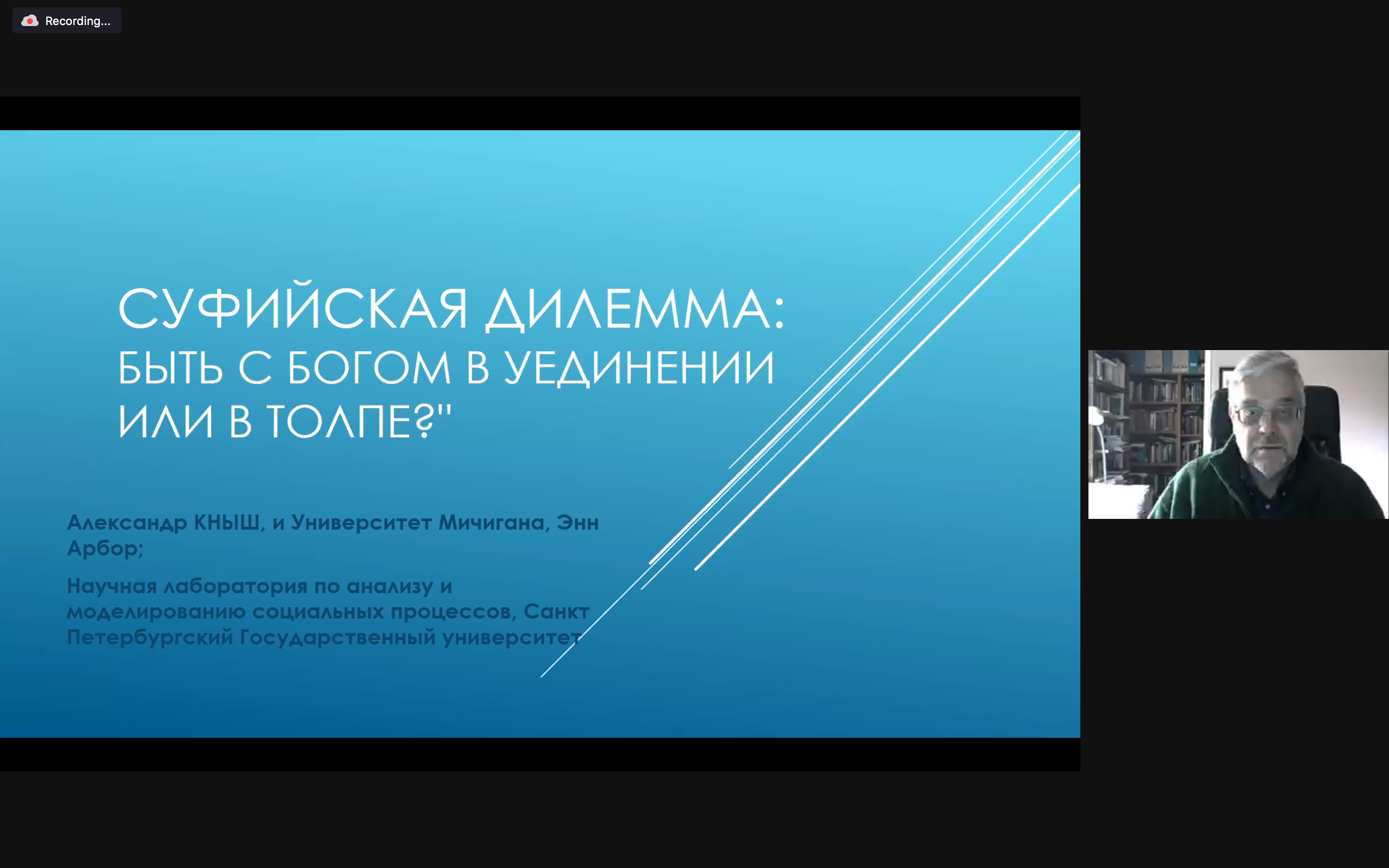Continuing the IIIT lectures series for CIS countries, organized by the International Institute of Islamic Thought (IIIT) and the Institute of Knowledge Integration (IKI), on October 23, Alexander Knysh, Professor of Islamic Studies at the Faculty of Middle Eastern Studies at the University of Michigan (Ann Arbor, USA) and the head of the Scientific Laboratory for Analysis and Modeling of Social Processes at St. Petersburg State University (Russia), spoke on the topic "Sufi dilemma: to be with God in solitude or in a crowd?".
In his lecture, Professor Knysh looked at different approaches to interacting with the world and laity, developed in Sufism during its evolution in time and space. According to him, classical Sufi works (IX-XI centuries) pay greater attention to the inner world and mental state of the Sufi without showing much interest in his "worldly" life. This prompts a conclusion that the worldly life vicissitudes were not of great importance to the Sufis. They were primarily concerned with striving to achieve spiritual closeness to God and inner self-improvement. While this seems logical, it does not reflect the actual relationship between Sufis and society. This relationship has changed over time, becoming more complex and ambiguous.
Participants of the lecture were interested in the approaches of Sufism to different issues, particularly related to history, psychology; they also asked questions about modern Sufis and contemporary literature on Sufism, as well as shared their own opinions and experiences of studying Sufism, and searching answers for many questions.
More than 50 participants from different countries, including Ukraine, Uzbekistan, Kazakhstan, Russia, Turkey, Kyrgyzstan, Egypt, USA, and UAE, had listened to the lecture.
Announcement of the next lecture will be posted on the IIIT CIS lectures and the Institute of Knowledge Integration Facebook pages.









